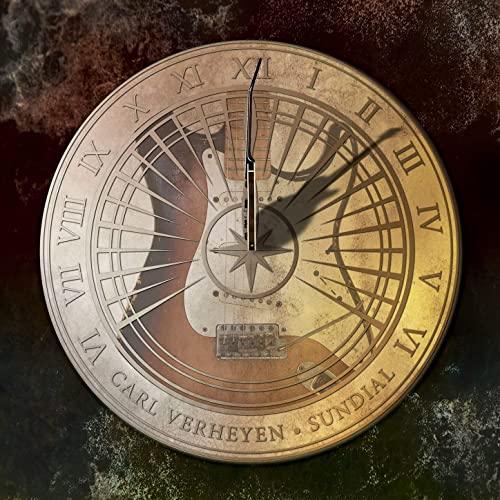Artist: Carl Verheyen Sundial
Album: Carl Verheyen Sundial
Label: Cranktone Entertainment
Release Date: 4.15.21

Membership in the mid-1980s version of Supertramp, then attempting to carry on without Roger Hodgson, had its privileges for Carl Verheyen. Hired to go on tour with the proggy pop-rock leviathan in support of the Brother Where Are You Bound LP, the guitar savant had to solo live with such grandeur and technical ability on the 1985 album’s title track that audiences would forget the lengthy, winding passages David Gilmour deftly negotiated for the original recording.
A daunting assignment, to be sure, but for Verheyen, long a Gilmour admirer, it was the chance of a lifetime. He repays the Pink Floyd maestro’s inspiration with the soulful swells and complex melodic sweep of a soaring “Spiral Glide,” the stunning centerpiece of the genre-hopping Sundial, where Verheyen’s sophisticated, versatile playing shines brilliantly. The homage to Gilmour is an expansive, slow-building bonfire of full-throated, all-consuming R&B backing vocals and Verheyen’s ascendent leads that is reminiscent of latter-day Floyd’s “Learning to Fly” or “On the Turning Away,” whereas the rest of Sundial is a more eclectic adventure.
Everything from a hustling, exuberant ska remake of The Rascals’ joyous “People Got to be Free” to the pulsating, mellow funk exercise “Clawhammer Man” exudes light, although it is the softly cascading, jazzy title track, with its open-hearted wonder and bittersweet romantic pop innocence, that is especially warm and engaging. Of all the musical languages spoken here, Sundial is most fluent in fusion, as the galloping instrumental “Kaningle,” with Verheyen’s smooth, fluid climbs riding the doubled-up drumming of Chad Wackerman and John Ferraro, blends afro-pop brightness and energy with Santana’s Latin heat. Bluesy rock ballads such as “Never Again” and “No Time for a Kiss” cause Sundial to turn wistful, but “Michelle’s Song” tries on the country-tinged, folk-rock sweetness of James Taylor for size and finds the fit perfect for Verheyen, as it is with all of Sundial’s stylistically diverse transience.
—Peter Lindblad







Be the first to comment!